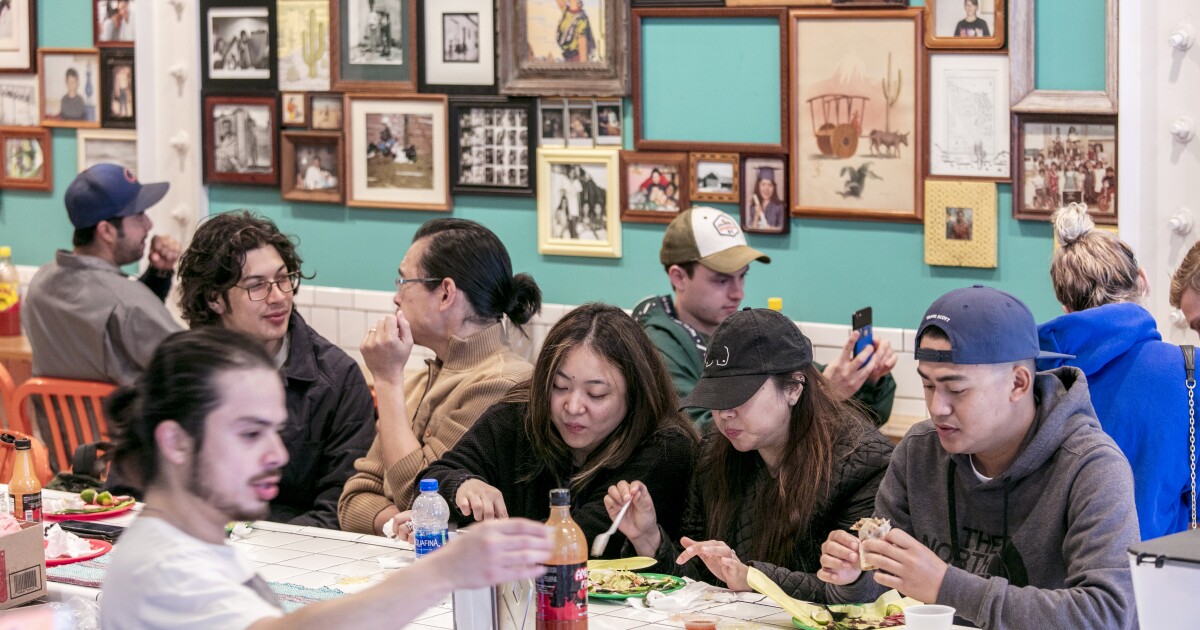A few weeks ago I wrote a column in which I briefly referred to the concept of “cave syndrome.” The term was coined by a Florida psychiatrist to describe people who fear or are unwilling to re-enter society after a pandemic, even after being vaccinated, because they have become too used to isolation.
I mentioned it only in passing, having heard something about it on a local news program. But when the column appeared, I was surprised by the number of readers who wrote or spoke to me about it, remarking that it was something they were experiencing themselves. “Thank you for giving how I feel a name,” wrote one woman. “I love when something has a name.”
Another reader was grateful that she was not the only one. “Just knowing that others also have this reaction makes it less emotionally overwhelming.”
At first it seemed strange to me that the “cave syndrome” struck such a chord, until I realized that I was having some of these feelings myself. I don’t usually suffer from social anxiety; I am not particularly shy or introverted. But I still feel a certain discomfort at the idea of being back in the same physical space with others: in a restaurant, in the office, in a store or in a subway car. It is partly the result of not knowing for sure what is safe and what is not, but it is also a return to the the status quo previous social after more than a year of extremely limited interaction.
I started asking around. Michael Dulchin, a psychiatrist at Union Square Practice in New York, said he has many patients reluctant to return to the world, or at least ambivalent about it. Some of them, he noted, had been genuinely relieved by the pandemic, by the respite from a competitive position, for example, or the forced pause of society, or the possibility of postponing decisions about the future. Several patients now fear resuming their eternal commute to work or donning a certain outfit and being judged for it, or simply re-entering the mad race.
Bulletin
Receive the latest news in Spanish Monday, Wednesday and Friday.
–
Subscribe to our newsletter
Occasionally, you may receive promotional content from the San Diego Union-Tribune en Español.
–
For Jenny Taitz, a clinical psychologist and assistant professor at UCLA, some people feel ashamed of how they spent the year. Maybe instead of learning French, they just got depressed and drank too much, and they feel sorry to admit it to their peers. Maybe they gained weight and now they don’t want to face their colleagues.
Those who suffered from social anxiety before the pandemic are particularly fearful of re-entry and the ever-present possibility of rejection or humiliation. But it’s not just people with pre-existing phobias who feel in conflict. “It makes perfect sense to be anxious right now,” said Taitz. “These are very extraordinary circumstances.”
Arthur Bregman, the Florida psychiatrist who came up with the term “cave syndrome,” agrees that it affects both introverts and extroverts. “Does this mean that someone who likes the convenience of working from home and having fewer social obligations has a mental illness? Not necessarily, ”he wrote in an essay. “But the danger is in getting too attached to the point where it interferes with life, even in the face of a return to normalcy.”
I don’t think anyone was particularly surprised to learn over the past year that the pandemic was affecting not only the economy and death rates, but our mental health as well. Of course it would; it is abnormal to maintain a distance of six feet from all other human beings. It is not natural to avoid touching; It’s unheard of for school children, college students, or young adults to not have daily, in-person interaction with their peers. It’s really weird dating on Zoom.
So it came as no surprise when the US Census Bureau announced in late 2020 that more than a third of Americans surveyed had reported symptoms of anxiety or depression, a substantial increase from the previous year. The numbers were significantly higher for young people living alone.
It’s a little less obvious why the end of the pandemic (assuming that’s what we’ve come to) would also be traumatic. But coming out of isolation is difficult, in its own way. Transitions can be complex, even when they are what we want. Some inmates released from prison, for example, experience high levels of stress and anxiety.
In a February survey by the American Psychological Association, 49% of adults said they felt uncomfortable adjusting to in-person interactions when the pandemic ended. Around 46% stated that they are not comfortable living again as they used to before. Vaccinated adults were as likely to respond as those who had not been immunized.
A degree of ambivalence or even fear seems perfectly natural. However, the therapists I spoke with cautioned that people should not give in to it. Of course, you have to follow the guidelines of the Centers for Disease Control and Prevention (CDC) and also local health officials. But re-entry into society should not be postponed out of fear. Anxiety, Taitz emphasized, is fueled by avoiding things.
“For people who have these sensitivities, it’s time to put the armor back on,” Dulchin said.
Do you remember the prisoners in Plato’s allegory who are imprisoned in a cave, and see only shadows on the wall? They begin to believe that those shadows are reality. Even when a prisoner is released and can see the moon and the sun, he fails to convince others that they are only seeing part of the world, not the world itself. They were the ones who originally suffered from cave syndrome; let’s not follow their example.
–

:quality(75)/cloudfront-us-east-1.images.arcpublishing.com/elcomercio/XHMLBW7TL5GFRLBHKKJHXWU4WM.jpg?resize=150%2C150&ssl=1)
